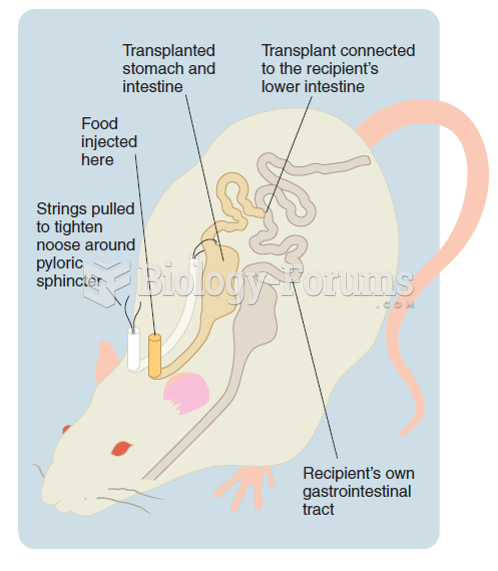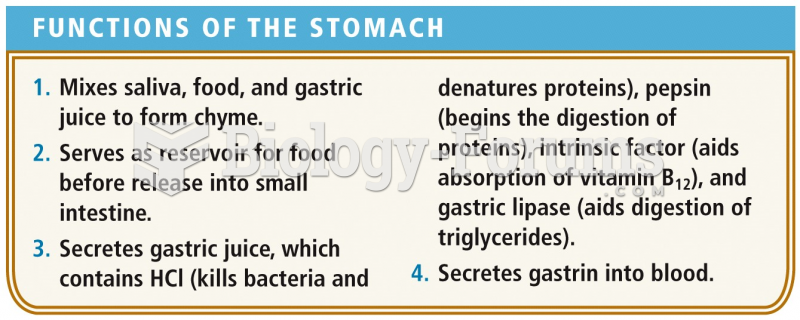|
|
|
The first-known contraceptive was crocodile dung, used in Egypt in 2000 BC. Condoms were also reportedly used, made of animal bladders or intestines.
According to the American College of Allergy, Asthma & Immunology, more than 50 million Americans have some kind of food allergy. Food allergies affect between 4 and 6% of children, and 4% of adults, according to the CDC. The most common food allergies include shellfish, peanuts, walnuts, fish, eggs, milk, and soy.
The Romans did not use numerals to indicate fractions but instead used words to indicate parts of a whole.
For pediatric patients, intravenous fluids are the most commonly cited products involved in medication errors that are reported to the USP.
Vaccines prevent between 2.5 and 4 million deaths every year.







